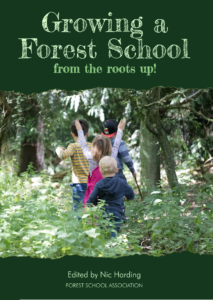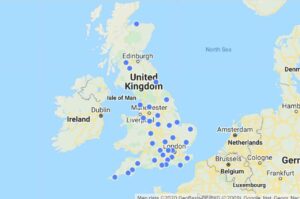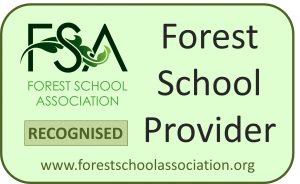Who is The Green Man? Contact The Green Man
 “Be the change in the world you want to see.” (Gandhi)
“Be the change in the world you want to see.” (Gandhi)
For me, this quote sums up the heart of what Forest School is about. It’s transformative potential to empower individuals all hangs on the verb ‘to be’. How can we support others to become; resilient, independent, confident, creative, playful individuals if we ourselves are not modelling these things? But, just how easy it is to ‘be the change’? We live in a modern world where pretty much anyone can ‘talk the talk’ but how many people out there can actually ‘walk the walk’?
When it comes to walking the path of becoming an effective Forest School Leader we are talking about developing some pretty challenging attributes; ones I’m sure that even His Holiness the Dalai Lama struggles with from time to time!
• Congruence – As Forest School’s main purpose is to develop appropriate levels of self-esteem, I am using Carl Rogers (Humanistic psychologist) definition of congruence – when there is overlap between a person’s self-image and ideal-self and the person is able to self-actualise (or in Rogers terms to become a ‘fully functioning human being’).
• Non-Judgemental – avoiding moralistic judgements.
• Compassion – According to Buddhism (and emotion researchers) compassion is ‘to suffer together’. ‘Co’ meaning together and ‘passion’ meaning strong feelings.
• Creativity – According to Sir Ken Robinson (advocate for creativity in education) creativity is ‘the process of having original ideas that have value’.
I use the word ‘challenging’ above because, to me, they are things that do not appear to be abundant in our modern, consumer-driven, and technology focused world. In fact I would dare to say that they appear to be actively discouraged in our society.
So now we’ve talked about them, but what does it mean to BE them?
• Being Congruent – Your actual experience of self and perceptions of life are similar to those that you aspire to be/have and are presented to the world. You know yourself (all aspects of yourself), have realistic expectations of yourself and are OK with yourself. You are aware of your own needs and emotional states and can meet those needs/ express those emotions appropriately. You are open and honest (both with yourself and with others).
• Being Non-judgemental – You take care to fully listen to what others are expressing (being aware that the majority of people do not express things through the words they use, you look for the messages behind the words). You accept other people’s actions/words without forming or expressing a judgement of what is ‘right or wrong’ (other people’s opinions may be different to your own but that doesn’t mean you have to judge them). When talking you express accurately the situation, without elaboration, criticism or praise. You show ‘unconditional positive regard’ to others (and yourself!), even when they are behaving in a way that makes it difficult to do so.
• Being Compassionate – You feel other people’s suffering alongside them by empathising with them (N.B. empathy is very different to sympathy!). You acknowledge and accept their feelings and needs non-judgementally (see above) and do not attempt to change them/gloss things over/cheer them up. This ‘putting yourself in someone else’s shoes’ often motivates you to want to support them to take steps to relieve their own suffering, but you are aware that no one else can do this for them. You are also aware that to be compassionate to others you must first have self-compassion.
• Being Creative – You are an aware and independent thinker and being, not easily swayed by others judgements on you or on the subject matter. You are intrinsically motivated by the creative process itself, not undertaking things to please others, gain status or for any other rewards. You question what you read/see/hear to analyse how it fits with your own awareness and understanding. You are open, experimental, try new things and acknowledge that things are rarely effective the first time round – that what some people call ‘mistakes’ are essential elements of the creative process; they enable reflection, problem solving and refinement. You are willing to take risks, put yourself and your ideas out there, knowing that other people may have different opinions to yourself but you are willing to fight for what you believe.
To me, these 4 attributes of a skilled and effective Forest School Leader (and there are many more!) seem like a giant mountain to climb, and we can only take one step at a time. However, you’ll never climb the mountain if you’re not even aware that the path is going in that direction. It’s also not a path you can jump on and off as it suits you or the context (I can’t just switch on my non judgement & compassion on Forest School work days and become a judgemental narcissist on the weekends!). It is a long hard journey and a way of being human. So I take the path one step at a time, stopping occasionally for a breather and to consider my actions (I don’t want to slip!).
I invite you to take a moment to stop, breathe and reflect with yourself. Are you ‘walking the walk’ of Forest School and taking the mountain path? Or are you just talking about it and the mountain is just a blur on the horizon?





I am so glad that we are able to aspire – I find that each mindful step I take opens up so many possibilities and considerations that I stop for another month or so just to find somewhere to put the new constructs!